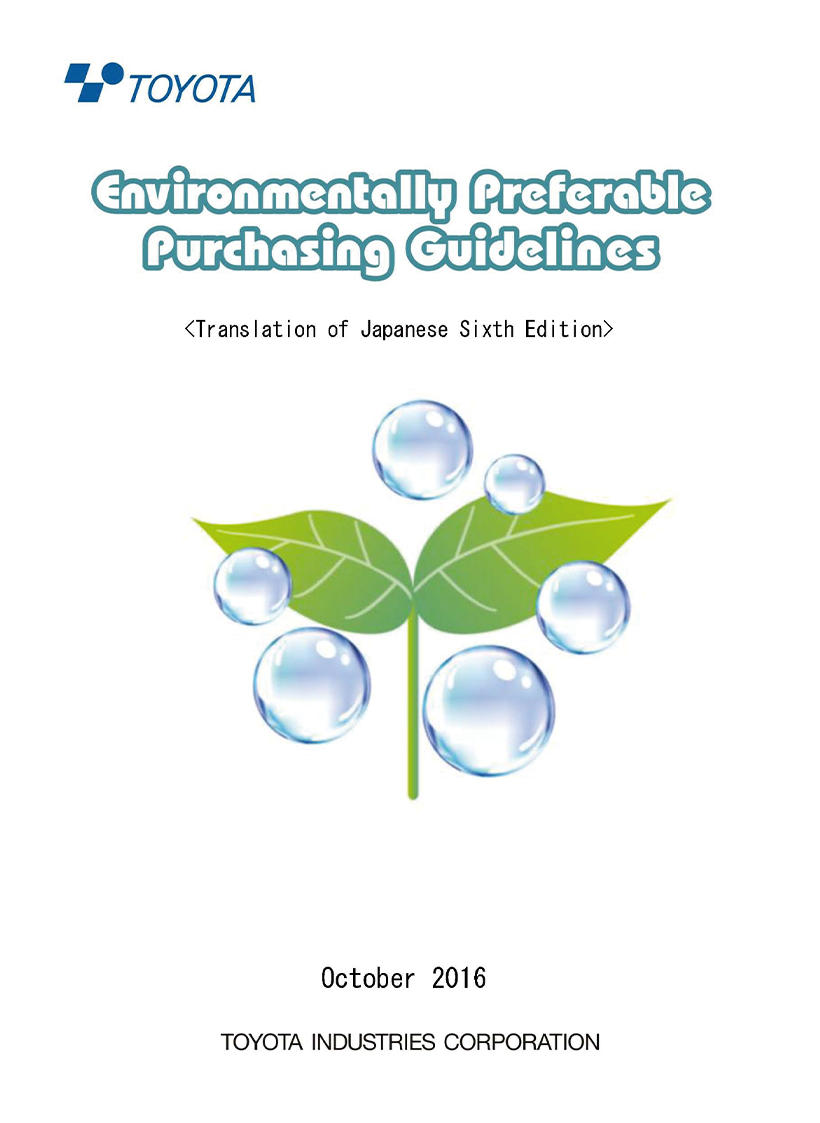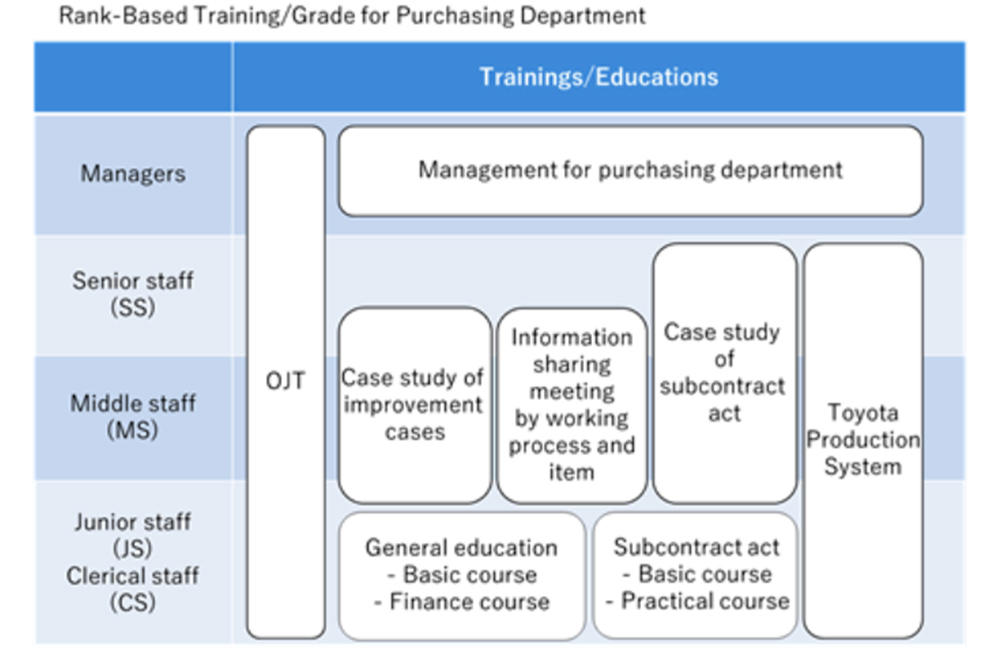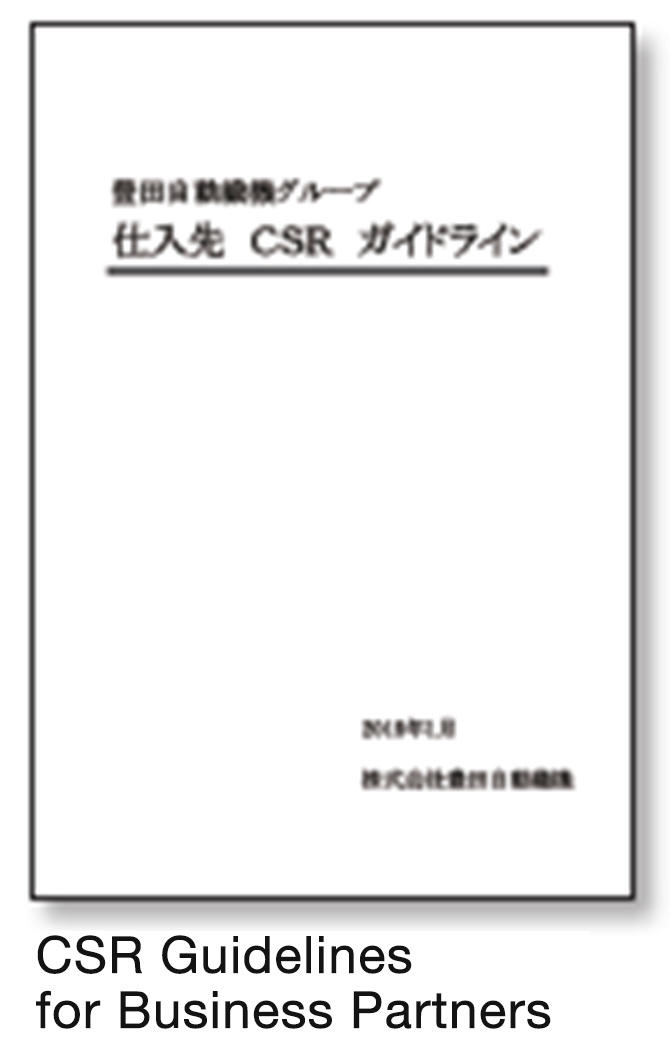The Story of Sakichi Toyoda
Sakichi Toyoda, the founder of Toyota Industries Corporation, possessed a strong ambition to contribute to society from his days as a youth. He had devoted his 63-year-long life to invention.
Toyota Industries encourages open procurement and seeks co-existence and co-prosperity with our business partners (suppliers) based on mutual trust. We also facilitate fair trade, environmentally preferable purchasing, human resources development, disaster prevention activities for a possible major earthquake and other disasters and more efcient purchasing.
|
|---|
We provide fair and equal opportunities to all potential business partners. We comprehensively evaluate our business partners based on such factors as quality, price, adherence to delivery times, technological capabilities and management information. We also assess their initiatives for safety, the environment and compliance as we strive for the timely and stable procurement of excellent products at lower costs based on fair business transactions.
We work hard to realize co-existence and co-prosperity with our business partners based on mutual trust. Every year, we hold procurement policy meetings and top manager seminars for major business partners to facilitate mutual understanding and cooperation. In addition, we provide such programs as quality control and technical skills training, guidance directed toward kaizen at their production sites and safety and health education throughout the year.

We aim to procure parts, raw materials and equipment from business partners that give sufficient consideration to the environment.
In the sixth edition of our Environmentally Preferable Purchasing Guidelines, we added the aspirations in 2050 of our Environmental Vision. Accordingly, we have been strengthening environmental management in our entire supply chain and undertaking relevant initiatives throughout the product lifecycle.

We proactively provide education to enhance procurement knowledge. In fiscal 2021, we provided education mainly on Japan’s Subcontracting Law to personnel in charge of procurement at Toyota Industries and affiliated companies by using a web conference system for greater efficiency and for preventing the spread of COVID-19.
We also thoroughly inform personnel in charge of procurement about our response to the Japanese government’s initiatives and guidelines aimed at ensuring fair subcontracts.


1.CSR-Related Efforts in the Supply Chain
Once a year, we distribute to our business partners the CSR Guidelines for Business Partners, which describe our requirements related to CSR activities, and ask them to perform a self-inspection using a checklist.
By doing so, we are striving to maintain sound transactions and augment a related structure throughout the supply chain.
Rate of performing a CSR check on applicable suppliers
(non-consolidated): 100% (fiscal 2021)
■Response to Conflict Minerals
As one initiative for respecting human rights, we stipulate our Procurement Policies for Mineral Resource and Raw Materials in the CSR Guideline for Business Partners.
Based on these policies, we conduct a periodic check to confirm that Toyota Industries and its business partners do not use conflict minerals that have concerns for the funding of armed groups or for the abuse of human rights, such as child labor, forced labor and mining under poor working conditions.
Rate of conducting a periodic check on applicable suppliers (non-consolidated): 100% (fiscal 2021)
■Establishing a Hotline for Business Partners
In fiscal 2017, we set up a hotline for our business partners to report and inquire about possible compliance violations in Toyota Industries’ procurement activities to ensure early detection and the prevention of problems.
2.Business Continuity Management (BCM)
In further promoting BCM, we are making concerted efforts with business partners to reduce associated risks by implementing specific measures. In fiscal 2021, to deal with frequent natural disasters in recent years, we extended the scope of our IT system-based damage assessment from earthquakes to other natural disasters. As part of our supply chain risk assessment related to floods, we have identified business partners with flood risk by using hazard maps. Moreover, in order to recover quickly and maintain production, we have reinforced our flood control measures at each base while at the same time accumulating inventories and examining ways to decentralize suppliers and production bases.